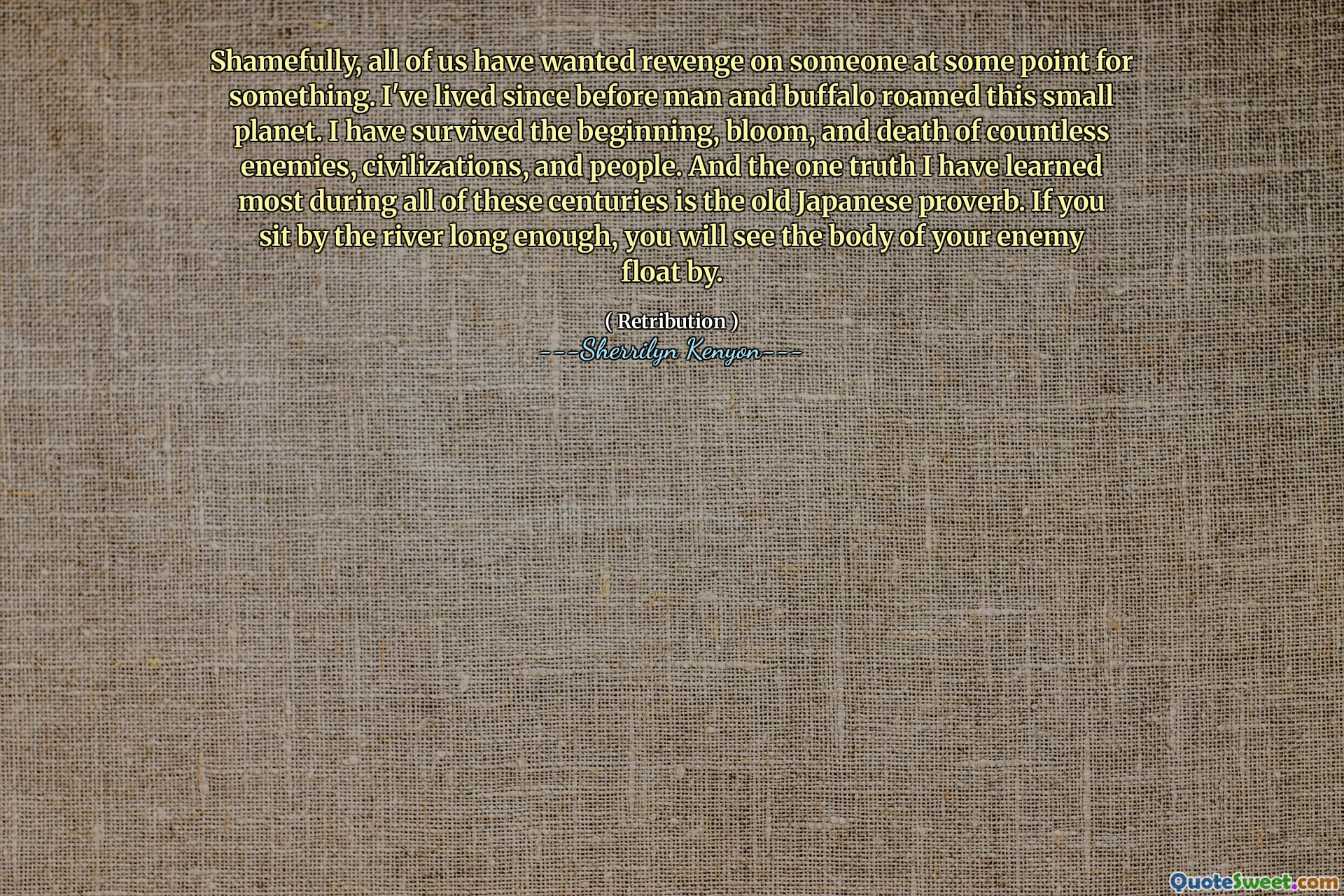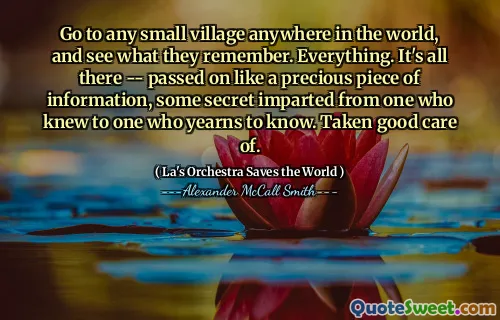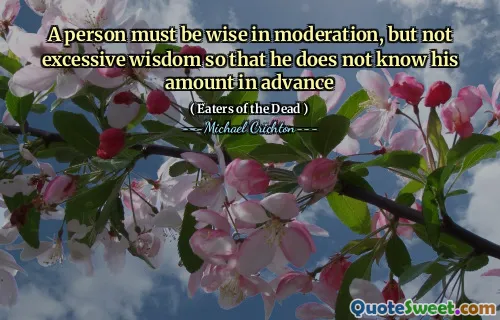
Shamefully, all of us have wanted revenge on someone at some point for something. I've lived since before man and buffalo roamed this small planet. I have survived the beginning, bloom, and death of countless enemies, civilizations, and people. And the one truth I have learned most during all of these centuries is the old Japanese proverb. If you sit by the river long enough, you will see the body of your enemy float by.
This quote presents a profound reflection on patience, the passage of time, and the natural cycle of justice and retribution. It speaks to the human tendency to seek revenge, a sentiment that spans across cultures and eras, highlighting our collective imperfections. The narrator, having experienced millennia of history—having witnessed civilizations rise and fall—recognizes a timeless truth: revenge and revenge’s aftermath often take much longer than anticipated, and sometimes, justice is achieved not through active pursuit but through patience and the relentless march of time.
The Japanese proverb, 'If you sit by the river long enough, you will see the body of your enemy float by,' underscores the value of patience and the unexpected ways in which justice can manifest. It posits that holding onto anger or desire for vengeance can be futile; instead, allowing time to pass might lead to natural outcomes that surpass personal effort. By using this imagery, the quote encourages introspection about the futility of dwelling on grievances and highlights the importance of letting the natural flow of life and time resolve conflicts.
From a broader perspective, this wisdom reminds us that resistance or prolonged conflict often prolongs suffering, and sometimes, the best course of action is strategic patience. It also touches upon how history and natural law evolve over time, often balancing the scales in ways we might not immediately see. This insight can foster humility, acceptance, and a recognition that justice, in its own time, can be more complete and fair than any immediate act of revenge.






